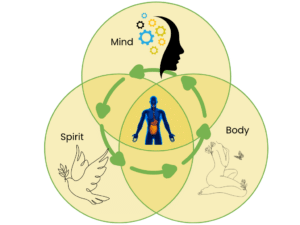
Sleep and Gut Health: Unveiling the Hidden Connections
How do sleep and gut health go together, you ask?

Remember our pal, Tim?
A high-flying entrepreneur, the life of the party, the one who routinely juggled a million tasks without batting an eyelid.
Well, Tim was also the poster boy for sleep deprivation.
His daily regime was an ode to the late-night tweak to that marketing campaign, crowned with a dash of moonlight video editing.
But of course, he would then wake up looking like a cross between a sleep-deprived zombie and a marathon runner.

“Sleep? Who needs sleep?!” he would proudly declare.
But then, one day, his gut decided it had a different opinion.
It kicked up a fuss.
It was no longer that happy camper.

It was more of a grumpy old man demanding a decent siesta.
Sleep and gut health go together
This is where our story takes an exciting turn.
Picture this.
Your gut, that’s right, the one that helps you relish your favourite cheesecake and bravely battles the enemy forces of last night’s questionable takeaway, is a bustling metropolis.
This city never sleeps but requires the mayor (that’s you!) to do so.
It’s chock-full of billions of beneficial bacteria that help break down food, absorb nutrients, and fight off harmful invaders.
A functioning gut city is like a well-oiled machine, harmoniously contributing to your overall health.

So, what does sleep, or in Tim’s case, the lack thereof, have to do with all this?
Quite a lot, as it turns out.
According to a study published in Molecular Metabolism, irregular sleep patterns can disrupt the natural rhythm of your gut’s residents, leading to an unhappy tummy.
Moreover, another study in Neurogastroenterology & Motility indicated that lack of sleep could heighten your gut’s sensitivity, making it more susceptible to issues like irritable bowel syndrome.
Not fun, is it?


Ah, but the benefits of sufficient sleep on your gut health don’t stop there.
The beauty sleep you swear by doesn’t just keep those under-eye bags at bay.
It ensures your gut city thrives, helping maintain the balance between the good and bad bacteria, which is crucial for digestion and overall health.
Moreover, a rested body processes food better, ensuring better absorption of nutrients and reducing the risk of inflammation.
Who knew the key to a fit and fabulous gut lay in snoozing away?
Now the million-dollar question!

“How much sleep do I need?”
Well, before you jump to conclusions and plan a 14-hour sleep marathon, let’s set the record straight.
The National Sleep Foundation recommends that adults should aim for 7 to 9 hours of sleep each night.
Think about it like charging your phone.
You wouldn’t want to overcharge it and burn the battery out, right?
So, what does 7 to 9 hours of sleep look like practically?
It could mean being in bed by 10 PM and waking up at 5 AM or hitting the sack at midnight and waking up at 8 AM.
Simply put, it’s all about finding the sweet spot that suits your routine without morphing into a nocturnal creature.
You can try an experiment for a week, where you go to bed at your regular time but don’t set the alarm.
Assuming you’re fit and healthy, you should wake up at a time when you have had adequate rest. (Perhaps best when you are on a staycation, don’t want to miss that 8 am meeting)
Back to Tim!

He swapped his late-night adventures for a solid 8-hour sleep schedule.
And what happened?
The transformation was nothing short of miraculous.
To get all sciency on you, once Tim got into a regular sleep routine, his parasympathetic nervous system (PNS) took over.
Ever felt butterflies in your belly when nervous?
Thank your parasympathetic nervous system!
It’s the chill-out champion that calms your gut, making digestion a smooth operation.
His gut ceased its rebellion, his energy levels skyrocketed, and he looked less like a caffeine-starved zombie.

If you are well-rested and have a healthy gut, you too can be a real-life superhero.
Who wouldn’t want to own that cape?
So tonight, when you think about sacrificing your sleep at the altar of one more episode or just one more email, remember:
“Early to bed and early to rise keeps your gut healthy, wealthy and wise.”
In a nutshell, sleep isn’t just a passive activity.
It’s an essential service that your body and your gut need.
So, here’s to more zzz’s, happy gut cities, and long, healthy lives!





